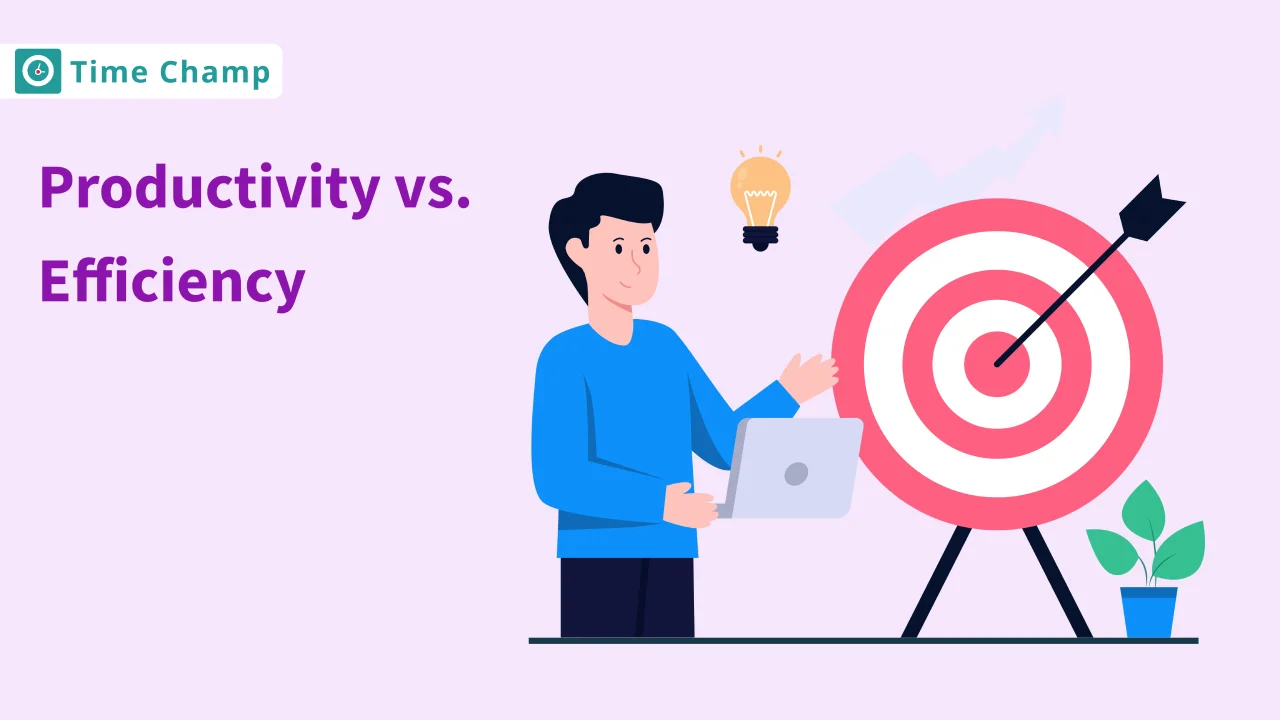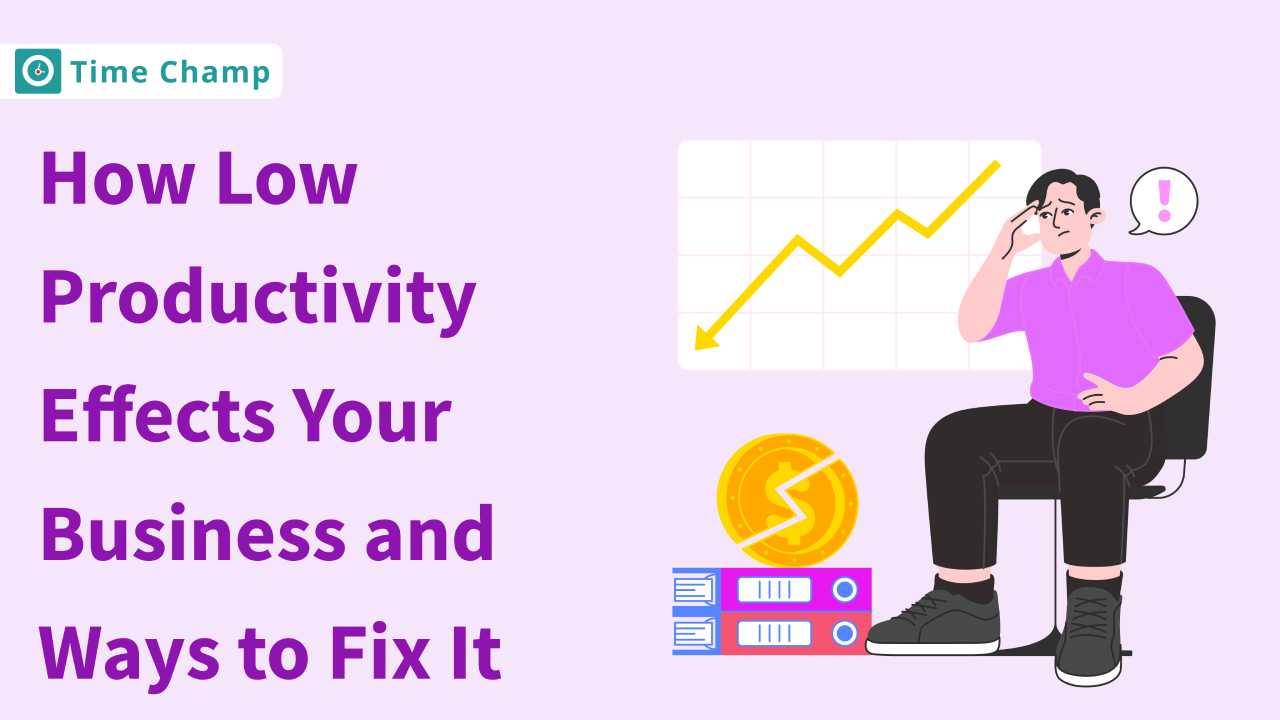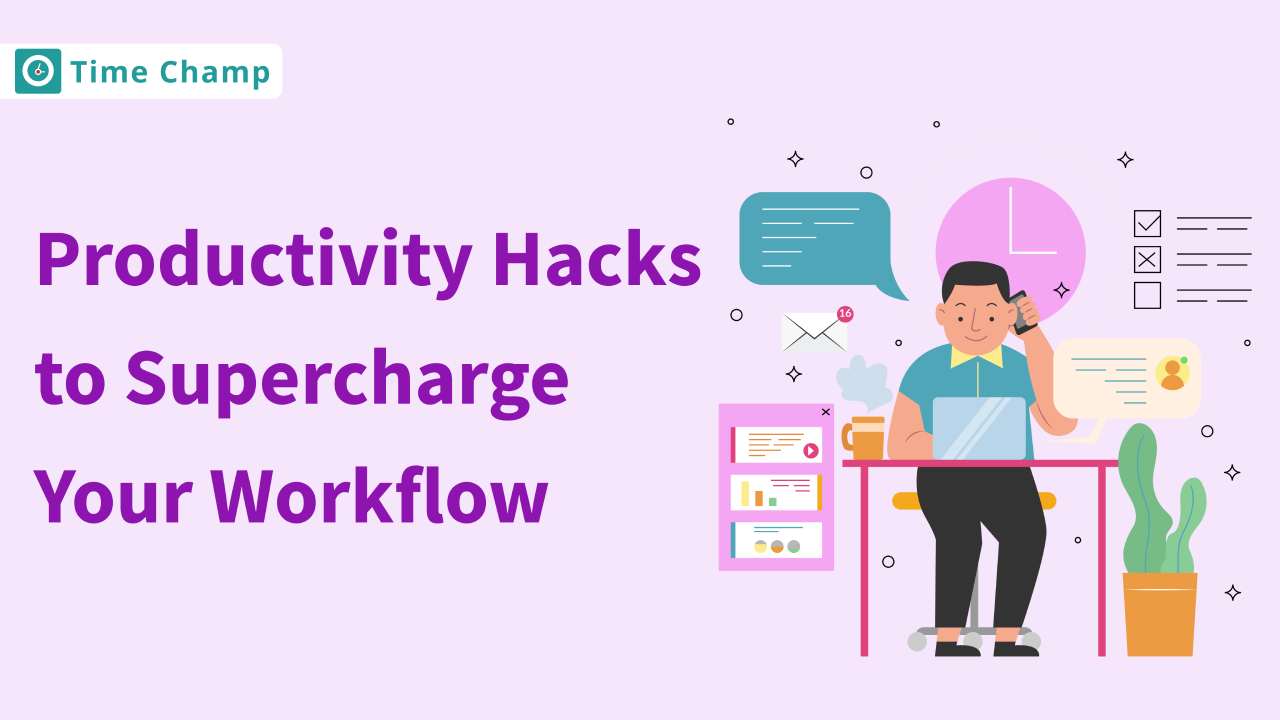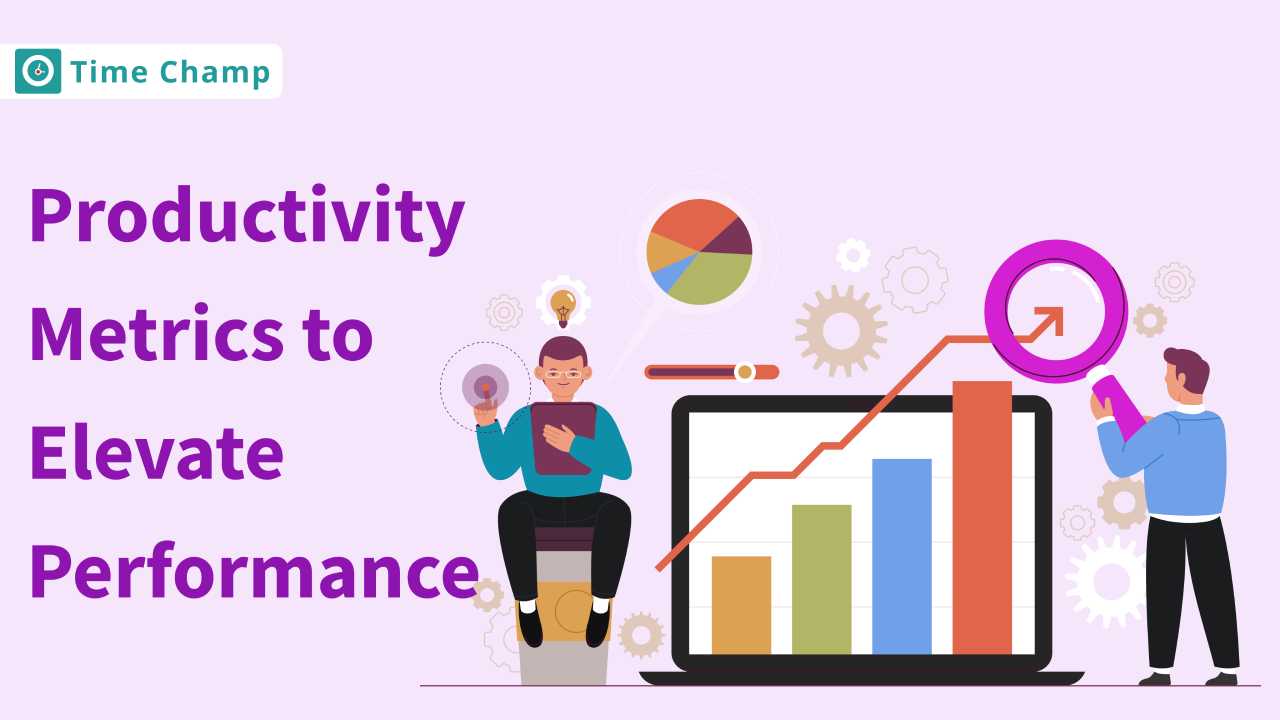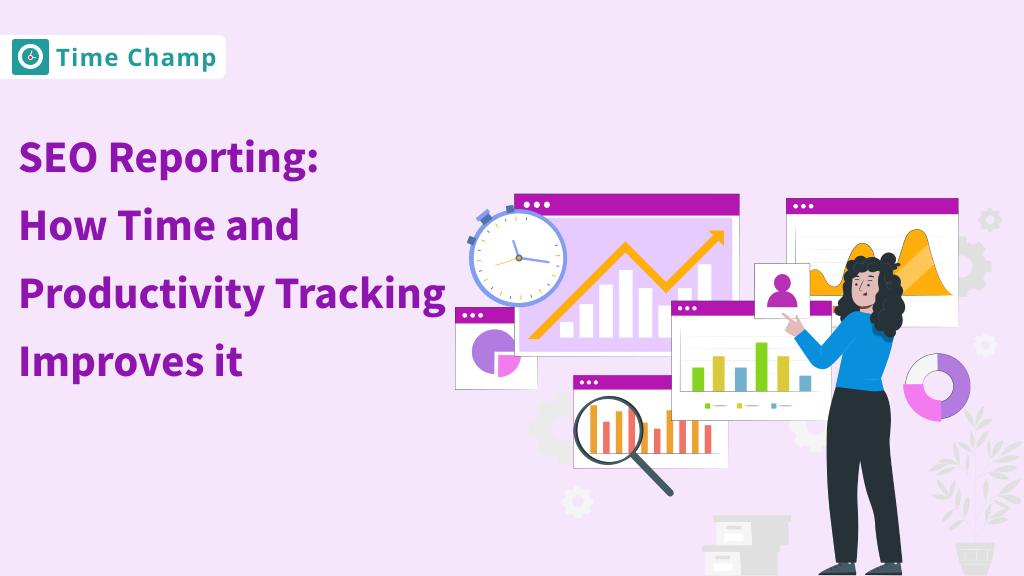Regarding the improvement of work quality, people tend to think that productivity and efficiency are two aspects of the same thing. It becomes confusing when people fail to grasp that they are two distinct entities. Productivity and efficiency are two terms that are often used interchangeably but are not the same.
This is why it is important to distinguish between productivity and efficiency so that one can work better.
What are the impacts of daily activities on Productivity and Efficiency? It’s time to brainstorm together and find out how to make our days more productive!
Understanding Productivity
Productivity is the quantity of work that is produced in a particular period. It measures the extent of work accomplished, i.e. the number of units of output, activities performed, or objectives met. For instance, if Employee A produces 10 units in an hour, then he or she is more productive than Employee B who produces 8 units in the same hour.
It is necessary to discuss some recommendations for the increase in productivity. These techniques will help in enhancing productivity.
1. Setting Priorities: Start by identifying which of the tasks are crucial. These are the ones that will help employees in achieving their dreams and goals at work. These are the tasks to focus on first. Some are strategic because they align with organizational objectives and plans, while others are emergent due to time constraints or other factors. To do this, prioritize the tasks by their importance and the time that is required to complete them.
2. Grouping Tasks: When there are several related tasks to accomplish, it is advisable to cluster them. This is time-saving and enables more to get done. This leads to increased productivity in the long run.
3. Take Breaks: Do not forget to allow breaks and have some rest during the day. It is important to schedule breaks not only to avoid getting tired but also to work harder and better. This is the best time to engage in some form of exercise such as stretching, deep breathing exercises, or even a short walk.
Understanding Efficiency
Efficiency can be described as the extent to which resources are used to accomplish a given task. It aims at using the least amount of resources possible and the time taken to complete a given task.
For example, if Employee A and Employee B work for an hour and type the same amount of text, but Employee A does it with fewer errors and uses less paper, then Employee A is more efficient.
Below are some strategies that will assist you in improving efficiency.
1. Clear Procedures: Standard operating procedures include preparing written documents that describe how to perform all activities in a business. This makes it easier for everyone in the company to work at the same time and come up with the same solutions.
2. Make Tasks Easier: Elimination of unnecessary steps is a little time-consuming but it makes things work better. This not only makes the work to be done faster but also makes the work to be done to be of better quality. This way, we can save time and be more effective in doing more useful things.
3. Setting Achievable Goals: Setting achievable goals helps employees to walk in the right direction and ensures that they remain focused and motivated at the same time. When they have goals that are realistic and meaningful, it becomes easier to prioritize tasks. This helps in handling matters of concern at the same time while ensuring that everyone is on the right track.
Practices to Estimate Productivity and Efficiency
To measure productivity and efficiency, key performance indicators such as output per hours worked or resources used.
Calculate Productivity
Productivity is the amount of output that is achieved in a given time frame, which is time, resources, or manpower.
Here’s the formula to calculate productivity.
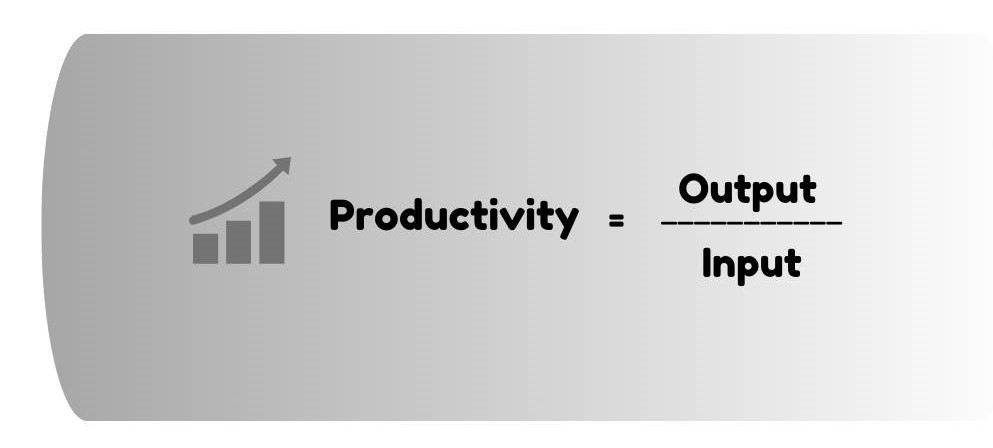
Calculate Efficiency
Efficiency can be defined as the ability to measure the extent to which resources have been utilized to achieve specific goals.
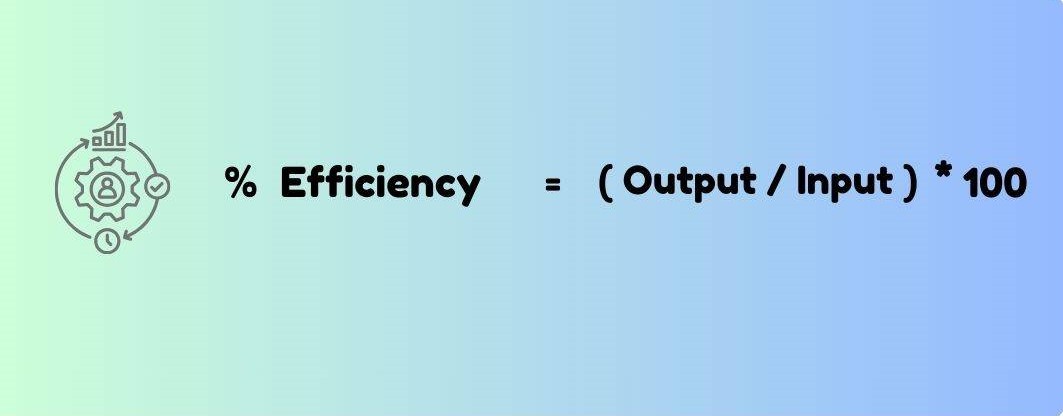
Differentiating Productivity and Efficiency
Productivity and Efficiency are often seen as two sides of the same coin, but in fact, they have different meanings in terms of overall performance. This is a summary to give you a clear picture of the differences between them.
| Category | Productivity | Efficiency |
|---|---|---|
| Definition | Productivity is the amount of output produced in an industry using the available resources in the industry. | Efficiency is the ability to perform a task smartly to achieve a certain objective without wasting resources. |
| Focus | It is all about how effectively a tool or a system leverages items such as time and materials to produce useful entities. | Making the best out of what you have without wasting anything and doing things in the shortest time possible. |
| Importance | It is the management of resources in such a manner that the maximum benefits can be obtained out of the available resources. | Establishing specific objectives for lowering operational costs without weakening quality. |
Mastering the Balance
As in music, where one strives to produce the perfect song, it is important to determine the productivity and efficiency that is beneficial for both people and companies. When this balance is achieved, individuals can overcome difficult tasks and feel good about the results achieved.
- Establish goals: Productivity goals are set in terms of the amount of work or products to be completed within a given period. It is all about how to get the maximum out of the available resources such as materials, manpower, and time.
Efficient goals are aimed at reducing waste in activities, resources, and energy. This involves setting specific objectives to reduce operational costs while maintaining quality and productivity. - Keep Track of Progress: It is also important to monitor the progress and ensure that the employees are utilizing their time and resources efficiently. Check the areas to see where they could improve. This way, you can determine what is effective and what is not when it comes to productivity and efficiency.
- Keep a Balanced Life: It is important to balance life to be good at getting things done. When life is balanced, you become more creative, and stronger. Employers who want their workers to have a good work-life balance demonstrate that they are concerned about them. This makes people happier, reduces turnover rates, and makes the company perform better.
Moving Forward: Practical Tips for Better Performance
Some of the recommendations are useful because they are practical. They give clear instructions that can be used to improve and achieve goals. These tips offer real strategies for improving productivity, managing time, and enhancing one’s skills. By applying these tips, one can eliminate barriers, develop skills, and progress in different aspects of life.
Below are some tips that may help you to improve your performance and thus increase productivity and efficiency.
1. Focus on Managing Your Time:
Time management is a way to enhance performance by organizing tasks, increasing the speed of work, and decreasing the level of stress. When a schedule is well planned, it helps minimize distractions, minimize mistakes, and make work easier. Delivering goals on time increases morale, motivation, and professional standing. It can be stated that effective time management results in better performance.
2. Improve Skills:
One should always look for opportunities to acquire knowledge and skills that will be useful in the job and the future. Education is something that should never stop because it helps one to be in a position to change and also to grow in one’s career. Education enables one to be more productive in performing tasks because one has acquired new knowledge.
3. Use Productivity Tools:
Productivity tracking tools can be thought of as useful guides toward the achievement of organizational goals. They offer valuable information on the productivity and efficiency of the work being done. They help in monitoring the progress of teams and employees and review the work and resources expended.
Time Champ is not just a tool that helps in managing your time. It is a weapon of choice for improving productivity and efficiency. Time Champ gives a clear picture of how time is spent by task tracking, due dates, and the time taken on a particular activity. Whether it is about identifying unproductive activities, planning the time, or prioritizing the work, Time Champ offers you the resources to improve performance and increase productivity.
Wrap Up
To sum up, we were introduced to productivity and efficiency, and how to do it correctly. What we learned is that if we concentrate on the essentials, if we reduce the complexity, and if we maintain the right proportions, we will achieve more. Time Champ is a software that helps to improve productivity. Apply these ideas in day-to-day lives to be more productive and happier.
Seize perfection with Time Champ, your Productivity partner
Signup for FreeBook DemoProductivity is the ratio of output to input while efficiency is the extent to which the resources used to produce the output are utilized.
It is important to understand both concepts help people to achieve the best outcomes and complete work effectively. Productivity means getting more out of the resources that have been put into use while efficiency means doing things in the best way possible and in the shortest time possible without wasting resources. Both are possible to master to achieve the best outcomes and to avoid wasting resources.
To increase workplace productivity daily, one should begin with setting goals and objectives and work on the most important tasks. When similar activities are grouped, the time taken to transition from one activity to another is reduced. Also, it is possible to take short breaks in between the days to give the mind some rest while keeping high levels of focus and energy.
Yes, productivity and efficiency are related and it is possible to enhance both in the workplace. By making tasks easier and using resources better, you can do more work (productivity) and do it with less time and energy (efficiency). Improvements in one area may lead to improvements in the other, thus making the overall performance better.
Boost productivity with these straightforward methods: organize work, establish time frames, reduce interferences, apply tools, distribute work, group similar tasks, and rest.
Monitoring applications that track tasks can help workers manage their time effectively and increase productivity. However, they may also lead to stress and low morale if the employees feel that they are being watched too closely. It is important to moderate their use in a way that enhances productivity without negatively impacting the health of the employees.
Time Champ helps in improving productivity and efficiency through features such as task tracking, time management, and reminders. It enables users to plan what they need to do, when they need to do it, and what their goals are. It provides information on time usage which may help the user to make changes and increase efficiency as seen in Time Champ. This versatile tool helps people manage their time more effectively and, therefore, be more productive in their activities.
Having several goals for productivity and efficiency has several advantages. It enables a systematic approach to change, is non-prescriptive, promotes ongoing learning, and supports a harmonized and sustainable work output.
